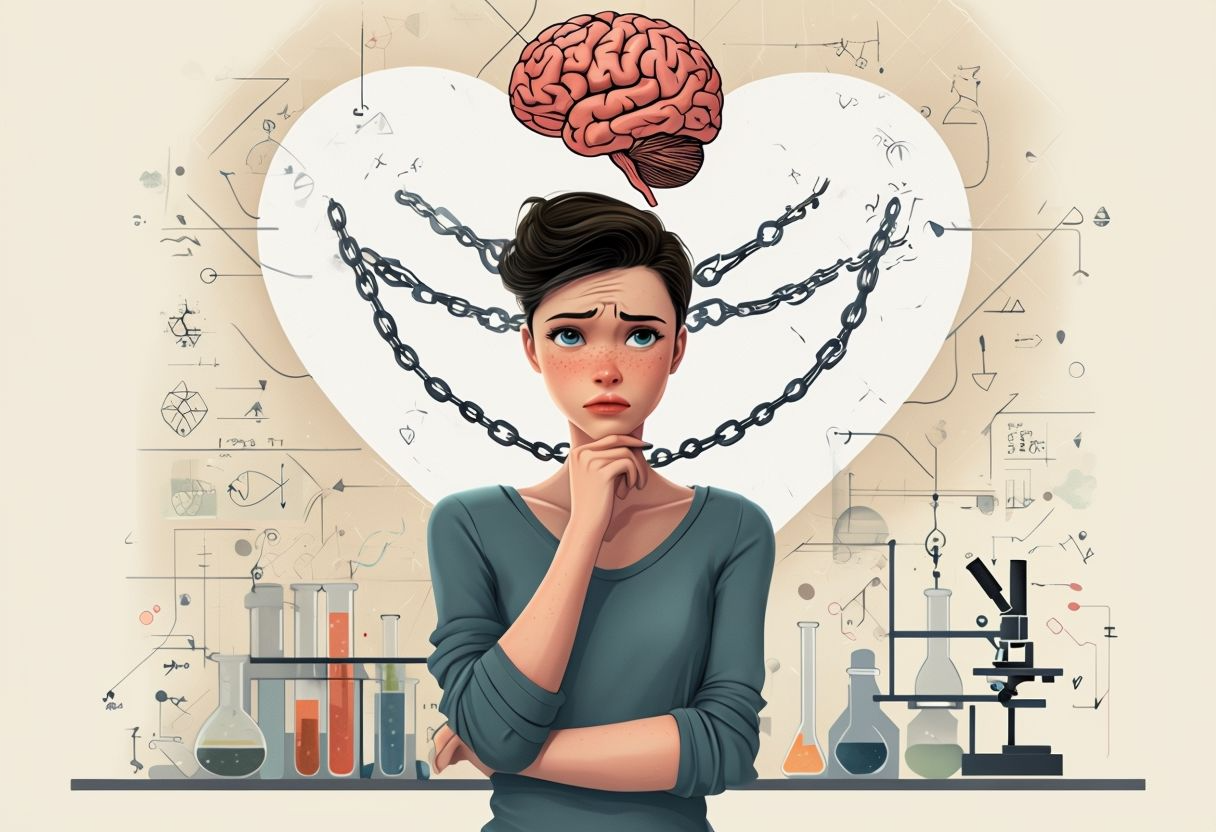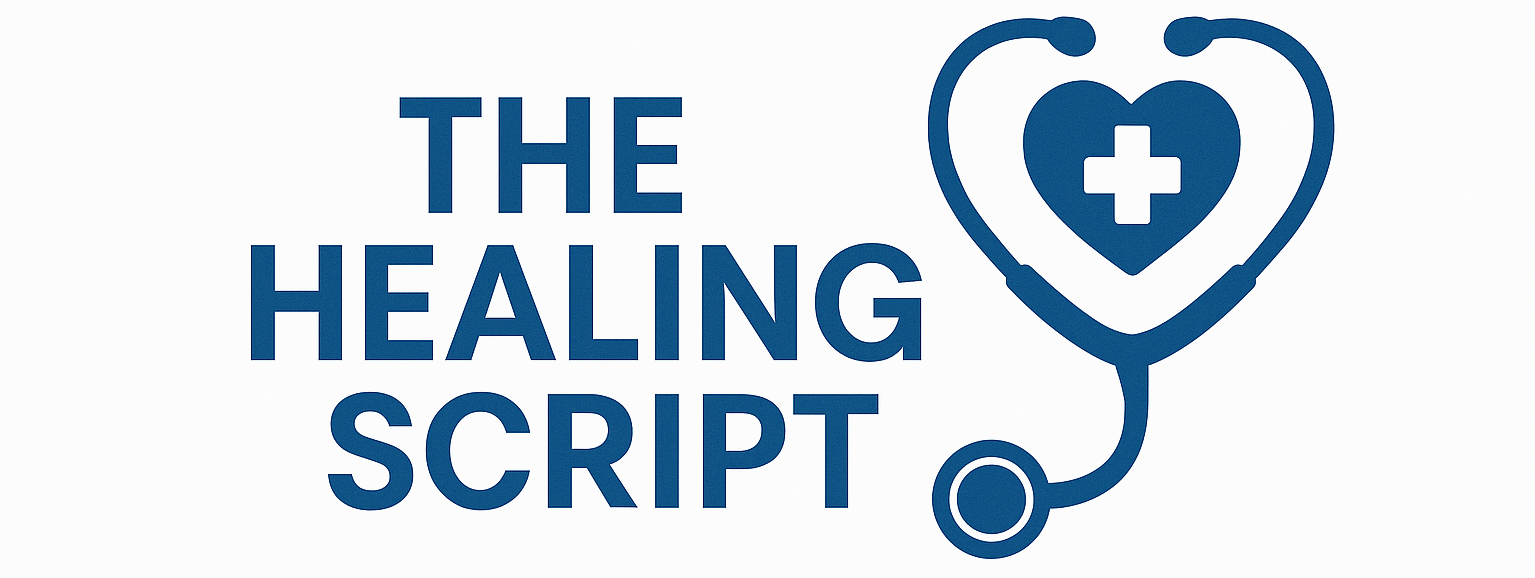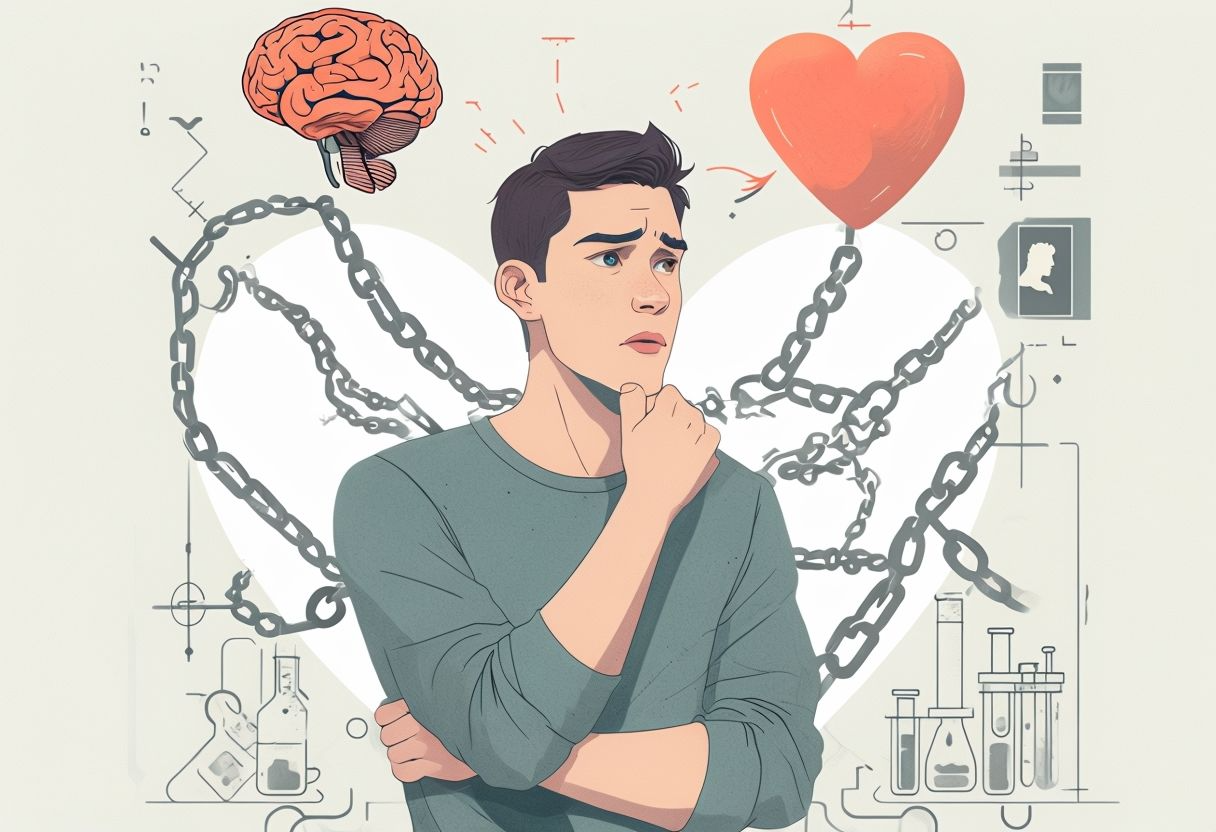Understanding the difference between healthy attachment and obsession is crucial for emotional and relational well-being. Understanding the difference between healthy attachment and obsession is crucial for emotional and relational well-being. As a medical professional, you are already familiar with the nuances of psychological conditions and the importance of evidence-based practice. This article explores how to know if you are obsessed with someone from a medically backed standpoint, using clear language for both lay readers and healthcare professionals. It covers the definition, symptoms, underlying causes, clinical considerations, and evidence-based treatment approaches.
What Is Obsessive Love? Is It a Medical Disorder?
Obsessive love refers to a persistent, intrusive preoccupation with another person, often accompanied by attempts to control or possess them. While the term “Obsessive Love Disorder” (OLD) is commonly used in popular media, it is important to note that it is not a medically recognized diagnosis in the Diagnostic and Statistical Manual of Mental Disorders, Fifth Edition (DSM-5)123. Instead, these symptoms may overlap with or signal other psychiatric conditions such as obsessive-compulsive disorder (OCD), borderline personality disorder (BPD), or delusional disorders.
Key Medical Insight
“Obsessive love can cause a person to fixate on loved ones as though they are an object or possession. This can be due to various reasons, ranging from mental health issues to delusional disorders.”

How to Know If You Are Obsessed With Someone: Medical Signs and Symptoms
Recognizing obsession involves identifying specific behavioral and emotional patterns that go beyond normal attachment:
- Constant, Intrusive Thoughts: Persistent, unwanted thoughts about the person that interfere with daily functioning423.
- Compulsive Communication: Repeatedly texting, calling, or messaging the person, even when it’s inappropriate or unwelcome453.
- Extreme Jealousy: Intense, often irrational jealousy regarding the person’s interactions with others453.
- Possessiveness: Attempting to control the person’s social life, activities, or interactions453.
- Boundary Violations: Ignoring or disrespecting the other person’s boundaries, such as showing up uninvited or monitoring their whereabouts453.
- Dependency: Feeling unable to function or be happy without constant contact with the person.
- Mood Swings: Experiencing emotional highs and lows based on the person’s attention or perceived rejection.
- Neglect of Other Relationships: Withdrawing from friends, family, and activities not involving the object of obsession.
- Difficulty Accepting Rejection: Inability to cope with the end of a relationship or lack of reciprocation, sometimes escalating to stalking or harassment.
Clinical Note
Obsessive love can sometimes escalate to behaviors that are harmful or illegal, such as stalking, and may require urgent psychiatric intervention153.
Medical Causes and Risk Factors
Obsessive attachment is complex and multifactorial. Medical literature identifies several contributing factors:
- Underlying Psychiatric Disorders: Obsessive love often co-occurs with conditions such as OCD, BPD, or delusional disorder1427.
- Attachment Issues: Insecure or anxious attachment styles, often rooted in early childhood experiences, increase vulnerability45.
- Low Self-Esteem: Individuals may use the relationship to compensate for feelings of inadequacy or emptiness43.
- Neurobiological Factors: Dysregulation of neurotransmitters (e.g., serotonin, dopamine, oxytocin) can contribute to obsessive patterns, similar to other addictive behaviors.
- Trauma or Loss: Past trauma, abandonment, or significant loss can trigger obsessive tendencies as a maladaptive coping mechanism.
Related Medical Concepts
- Relationship Obsessive-Compulsive Disorder (ROCD): A subtype of OCD characterized by intrusive doubts and compulsions focused on the relationship itself.
- Love Addiction: Some researchers conceptualize obsessive love as a form of behavioral addiction, involving similar neural pathways as substance addiction8.
| Feature | Healthy Attachment | Obsessive Love (OLD) |
|---|---|---|
| Thoughts | Balanced, flexible | Intrusive, persistent, distressing |
| Boundaries | Respected | Frequently violated |
| Emotional Regulation | Generally stable | Marked by mood swings |
| Independence | Maintained | Lost; dependency present |
| Social Functioning | Preserved | Impaired; social withdrawal |
| Response to Rejection | Tolerant, adaptive | Intolerant; may escalate |
Clinical Assessment: How Doctors Evaluate Obsessive Love
Since “obsessive love disorder” is not a formal diagnosis, assessment focuses on:
- Detailed Psychiatric History: Exploring symptom duration, severity, and impact on functioning.
- Screening for Comorbidities: Evaluating for OCD, BPD, mood disorders, or psychosis423.
- Risk Assessment: Identifying potential for self-harm, harm to others, or illegal behaviors.
- Functional Impact: Assessing interference with work, academics, and social life.
Evidence-Based Treatment Approaches
1. Psychotherapy
- Cognitive Behavioral Therapy (CBT): The gold standard for obsessive thoughts and behaviors; helps patients challenge distorted beliefs and develop healthier coping strategies.
- Dialectical Behavior Therapy (DBT): Especially effective for those with BPD or severe emotional dysregulation.
- Psychodynamic Therapy: Explores underlying emotional conflicts and attachment issues.
- Group Therapy: Offers peer support and reduces isolation5.
2. Pharmacotherapy
- Selective Serotonin Reuptake Inhibitors (SSRIs): Used for comorbid depression, anxiety, or OCD symptoms5.
- Antipsychotics: May be indicated in cases with delusional thinking or severe behavioral disturbance.
- Anxiolytics: For short-term management of severe anxiety.
3. Coping Strategies and Lifestyle Interventions
- Mindfulness and Relaxation: Meditation, yoga, and deep breathing to reduce anxiety and obsessive thoughts.
- Journaling: Helps patients process emotions and recognize patterns.
- Social Support: Encouraging reconnection with friends, family, and activities outside the relationship.
When to Seek Medical Help
If obsessive thoughts or behaviors are causing significant distress, impairing daily functioning, or leading to harmful actions, it is essential to consult a mental health professional. Early intervention can prevent escalation and promote healthier relationship patterns.
Backlinked Resources for Further Reading
- Medical News Today: Obsessive Love Disorder
- Verywell Mind: Obsessive Love Disorder
- Healthline: Obsessive Love Disorder
- Frontiers in Psychology: Relationship Obsessive-Compulsive Disorder
- NOCD: Obsessive Love Disorder
- PMC: Love Addiction
Conclusion: Medical Takeaways on How to Know If You Are Obsessed With Someone
Recognizing the difference between healthy attachment and obsession is essential for both personal well-being and the health of your relationships. If you notice persistent, intrusive thoughts, compulsive behaviors, or emotional distress centered around another person, these may be signs that your feelings have crossed into obsession. Understanding the medical and psychological factors behind obsessive love empowers you to seek appropriate support and adopt healthier relationship patterns.
Remember, obsession is not a character flaw—it can be a sign of underlying emotional or mental health challenges that are both common and treatable. If you or someone you know is struggling with these symptoms, don’t hesitate to reach out to a mental health professional. Early intervention can make a significant difference, helping you regain balance, build self-esteem, and foster fulfilling, respectful connections.
By staying informed and self-aware, you can nurture relationships rooted in trust, respect, and genuine affection—ultimately supporting both your mental health and happiness.
For more medically backed articles on mental health and relationships, explore the linked resources above.
Hi, I’m Dr. Sharad — a medical doctor with a heart rooted in healing beyond prescriptions. Through The Healing Script, I blend emotional wellness, relationship psychology, and mind-body medicine to help you heal from within. From heartache to hormonal shifts, everything you feel has science — and a soul. Welcome to your safe space for healing, clarity, and emotional rebirth.

